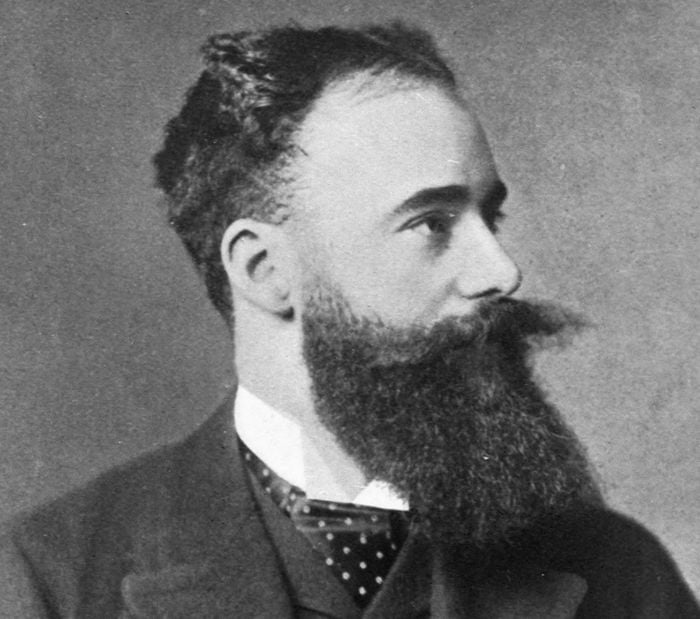Hermann Sudermann (1857 – 1928)
Sudermann was born in East Prussia in 1857, and educated at the Universities of Konigsberg and Berlin. He was one of the foremost leaders of the dramatic movement of the nineties, though today he is regarded as definitely belonging to the past. But his stories of East Prussian and Lithuanian life, and his novels, are written with a fine imaginative power, and are still read both in Germany and abroad.
The present version, translated by Grace I. Colbron, is reprinted by permission of the publisher, from Short Story Classics, published and copyright by P. F. Collier`s Sons, New York, 1907.
A New year`s Eve Confession
Thanks be to God, dear Lady, that I may once more sit beside you for a peaceful chat. The holiday tumult is past, and you have a little leisure for me again.
Oh, this Christmas season! I believe that it was invented by some rail demon expressly to annoy us poor bachelors, to show us the more clearly all the desolation of our homeless existence. For others a source Of joy, it is for us a torture. Of course, I know, we are not all entirely lonely—for us also the joy of making others happy may blossom, that Joy up on which rests the whole secret of the blessed holiday mood. But the pleasure of joining in the happiness of others is tainted for us by n touch of self irony partly, and also by that bitter longing to which—in interest to homesickness—I would give the name of “marriage sickness.”
Why didn`t I come to pour out my heart to you? you ask, you pitying doula, you—you that can give of your sympathy in the same rich that others of your sex save for their dainty malices. There`s it reason. You remember what Speidel says in his delightful Lonely Sparrows, which you sent me the day after Christmas, with a true | inception of my state of mind? “The bachelor by instinct,” he says, ”docs not desire comfort. Once he is unhappy, he wishes to have the hill enjoyment of his unhappiness.”
Besides the “lonely sparrow” whom Speidel portrays, there is flint her sort of bachelor, the so called “friend of the family.” By this do not mean those professional wreckers of homes, in whose eyes the Mrpctlt glitters as they settle down comfortably at the hospitable hunt stone. I mean the good uncle, papa`s former school friend, who rocks the baby on his knee while he reads the magazine essays to mamma, carefully omitting all the doubtful portions.
I know men who give up their entire lives to the service of some family whose friendship they have won—men who live on without desire by the side of a beautiful woman whom in their hearts they secretly adore.
You doubt me? Oh, it is the words “without desire” that disturb you? You are right, perhaps. In the depth of even the tamest heart some wild desire lies, but—understand me here—it lies bound in chains.
As an instance I would like to tell you about a conversation which took place day before yesterday, on New Year`s Eve, between two old, two very old, gentlemen. It is my secret how I came to know of this conversation, and I ask you not to let it go any further. May I begin, then?
Picture to yourself, as a setting for my story, a high ceilinged room, old fashioned in furnishings, lighted by a green shaded, impertinently bright hanging lamp of the sort our parents had in use before the era of petroleum. The cone of light that goes out from the flame falls upon a round, white clothed table, upon which stands the various ingredients for a New Year`s punch, while several drops of oil show out broadly in the center of the table.
Read More about The Story of Abou Hassan the Wag or the Sleeper Awakened part 7








